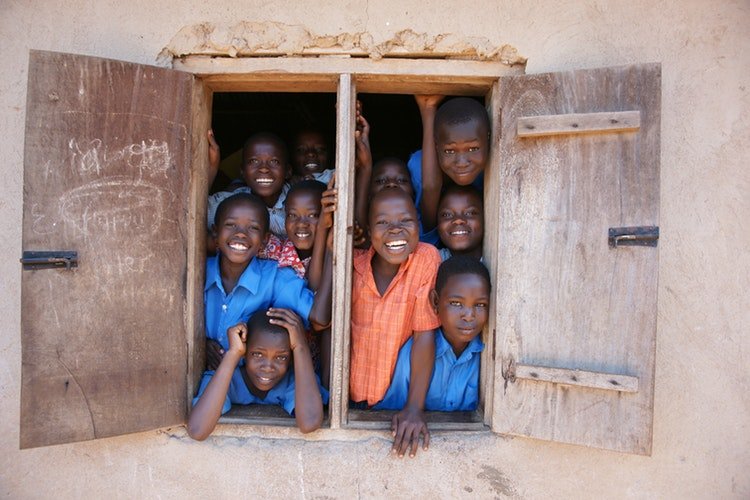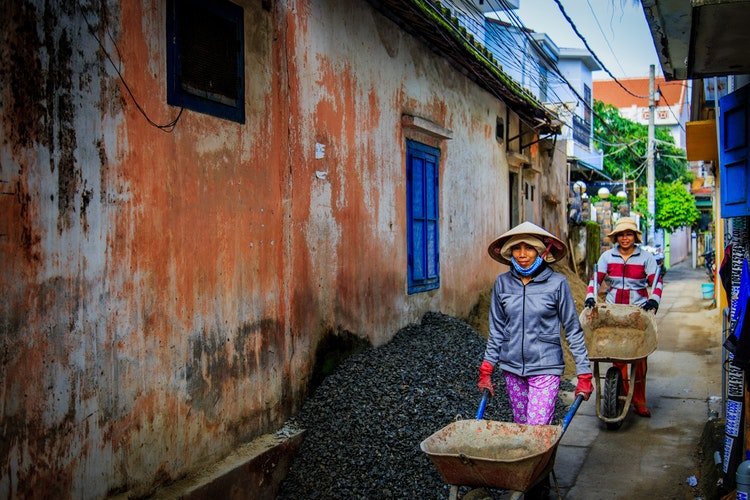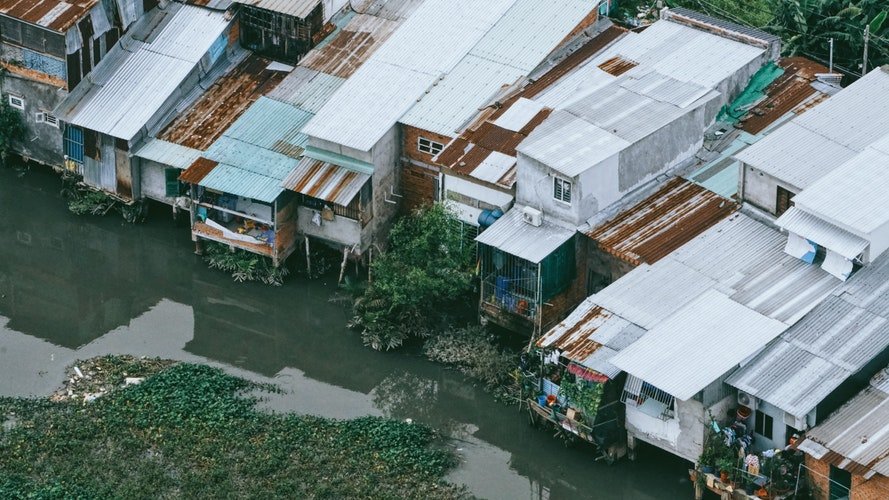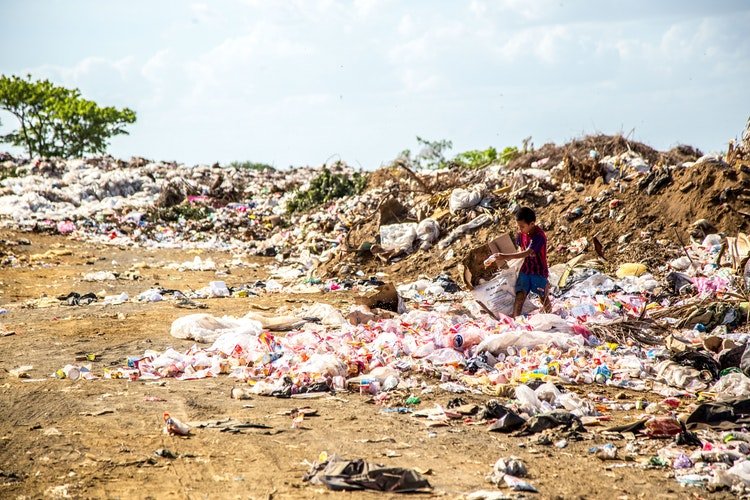10 Things You Should Look for in a Volunteer Travel Program

If you're setting out to volunteer abroad, you'll want to make sure you're signing up to spend your time and money on a responsible and quality program.
Unfortunately, the market is saturated with volunteer programs that harm more than they help. No one wants to be involved in a program like this and finding one that is ethically sound and responsible in its impact isn’t as hard as it might feel when you’re trawling through the thousands of options available to you.
To give you a helping hand, we’ve put together these ten traits of a responsible volunteer program so that you’re armed with the knowledge you need to know exactly the type of project you’re set to join. Plus, you'll be prepared for having the greatest impact possible when you take up the challenge of volunteering abroad.
1. They are Transparent About Spending
One of the first things you should ask to ensure that a volunteer program is legit is where all that money you're giving them will go. A good organization will be transparent with their spending and should be able to give you a receipt for your payment, a list of donors, and a breakdown of how much goes where.
This is also a good way to check the integrity of the organization. If, for example, most of the money is going towards commission or keeping foreigners pampered and happy, then they may be in the business to help themselves, rather than the community they claim to be serving. A good chunk of those program fees should be filtering back into the community and its development and not into one person's pocket. Being safe in the knowledge that the organization is accountable when it comes to funding means you know that you’re not funneling cash into a dead-end project, or worse, a complete scam.
2. They Have a Good Reputation Within the Community & Other Local NGOs
Although past volunteer testimonials and internet research are great ways to begin checking up on how responsible a program is, other local NGOs and the host community will have a clearer long-term perspective on the work this program is doing.
They'll know the character of the organization and the people running it. If other NGOs and the community can't vouch for this program and its positive impact, or confidently describe the kind of work they're doing, then take this as a bad sign.
Want to know what someone is really up to? Ask their neighbor.
For example, I once encountered a group of Australian volunteers who said they were building a school in a community in Costa Rica that I taught in for five months. They were happy, well taken care of, and sounded like they'd give the program a good review.
However, when we asked local community members about the volunteer program, they revealed that the structure would actually be used for coffee storage and that the leader was a notorious schemer. Reputation matters.
Sure, this type of information isn't the easiest to get hold of during your pre-volunteering research but don't be worried to reach out to other projects in the area to get their opinions and point you in the direction of those that are truly making a difference in the field.
3. Your Project Has an Achievable Goal That Shows Results

What exactly is your volunteer program hoping to achieve by sending you to teach sports to inner-city youth or work on a health campaign fighting AIDS? They should be able to tell you not just the project (i.e. teaching sports to inner-city youth) but also the goals this task will achieve (i.e. lowering drug abuse and criminal behavior among teenagers).
If they've been around for a while, they should also be able to give you proof that these methods are working. This could take the form of an annual review or report published by the organization and circulated among its donors or evidence that an evaluation system is in place and used for reflection and analysis of what is and isn't working. Either way, the program should be able to point you in the direction of some evidence of the impact that they’re having.
4. Foreign Volunteers are Filling a Gap in Human Resources
... and not taking away any job that could be done by a local.
You should always ask the program why do you need to look outside the community to find someone to do this job?
For many tasks, having at least some university education, proficiency in English, and a bit of tech savvy might be all it takes to make foreign volunteers better suited for the job than a local.
For others, like construction and other manual labor, it's highly likely that the workforce could be found locally and bringing volunteers in from elsewhere is hindering, rather than helping, local community member's ability to make a viable income. Even teaching, though a skilled profession, could be just as well done by a local, particularly as an understanding of the context of students’ lives can often be the most important factor in helping them to achieve progress.
When evaluating whether a program is both responsibly run and a good fit for you personally, think critically about your skill set and whether you’re really the best volunteer for the job -- and if the project even needs you. These questions to ask yourself before you volunteer abroad are a good place to start this reflection.
5. There's Active Involvement of the Community & Locally-Driven Goals
You can only help people willing to help themselves. A good volunteer program won't just be working in a community that has already recognized that they need assistance to develop; they'll be doing so in a way that involves the community and builds capacity.
The best projects are those where external expertise and local expertise join together in a fruitful meeting of minds and commitment.
I’ve seen before where NGOs have imposed projects onto a community without input from the people in question. The results are, without fail, a complete disaster and a waste of everyone’s time.
Effective non-profits work boils down to three basic tenets. One, projects are implemented based upon a need identified by the local community. Two, projects recognize the value and impact of local resources and knowledge. Three, they make use, where necessary, of outside expertise to strengthen the capacity of people in the local communities.
If the program can show that the needs that are being addressed are those that the local people themselves have identified, the assistance that you provide is something that is more likely to be of genuine use to them. Similarly, a project has a far higher guarantee of long-term success if it demonstrates a commitment to local resources and knowledge, which are sometimes better than foreign 'expertise'. Projects that exhibit these traits are also more likely to be working towards our next trait of a responsible volunteer program...
6. Sustainability is a Goal

Sustainability is a huge buzzword in the development field, but for good reason. Effecting change is a long-term matter: handouts are only ever a Band-Aid for a problem, and fail to improve the livelihood of disadvantaged communities the way that education, training, and individual empowerment can.
Make sure that your program has steps in place that ensure development will keep on going once volunteers have gone home.
Also ensure they have long-term project objectives that address the underlying causes of a problem, not just a temporary solution. This is fundamentally linked with robust monitoring and evaluation procedures where everyone from volunteers to the director of the program can identify how they are being successful and what more they can do to ensure this continues to be the case.
Again, sustainability is linked directly with capacity-building and the strengthening of local communities, rather than relying on a steam of volunteers to gap-fill. This brings us to our next trait…
7. They Build Capacity, not Dependency
Any organization working within the field of development, whether as a volunteer placement agency, NGO, or for-profit company, should essentially be working themselves out of a job by building capacity within the community to do the job they initially set out to do.
Some of the other traits already mentioned, such as sustainability and involvement of the community, are intertwined with this, but you should also specifically look to see if these long-term and community-driven goals are empowering individuals as well.
Will the staff involved with the organization walk away with a new set of professional skills? Will the community members you work with receive training? Will you be helping someone to do their job better, not just doing it for them? Ask your program how exactly they hope to make their role as a support system eventually unnecessary and for examples of where this has already been achieved.
8. There's Open Communication with Potential Volunteers
Just as the program should be transparent with their spending, they should also be clear and honest with potential volunteers about living conditions, the sort of work they will be doing, and the impact it has in community development. This goes beyond just honesty, however. A responsible volunteer program should be able to provide you with a job description or, at the bare minimum, a series of guidelines outlining what you can expect to be doing and the goals you will be working towards during your placement.
What’s more, volunteering organizations should demonstrate a commitment to ensuring your skills as a volunteer. This might take the form of pre-departure training, an induction when you arrive in the country or even a volunteer handbook to outline expectations that both you and the program should have of each other.
If the program is vague with responses, or seems unwilling to answer your questions directly, don't expect any better communication once you've landed in a country and find yourself asking "so, what am I supposed to be doing here anyway?"
9. They Take into Consideration the Skills & Qualifications of Volunteers

No volunteer program should ever let their volunteers do something they would be unqualified for back home.
If you have no teaching experience, you would be more helpful to a volunteer program by assisting a permanent teacher and letting them use you as a language resource, rather than leading the class yourself.
On the other hand, if you do have a special skill, it's a sign of a good program if they want to make use of it. Even if you aren't trained as a doctor, engineer, or educator, everyone has a skill that they can make use of, whether it's a passion for all things under the sea that would make them the perfect candidate to volunteer in marine conservation or the strong desire to make a difference by volunteering with refugees.
If you’re still not sure what that might be, dig deep into your hobbies, interests, and areas of knowledge or study and see if these translate into a tangible skill to bring to the table. Even better, find out exactly what different programs are looking for in a volunteer and what you can do to prepare yourself before you dive in.
Another important issue is programs that allow unqualified and unvetted volunteers to work directly with children. If you are working with children in any capacity, a responsible volunteer program will require a background check of you first; those that don’t are failing to put the safety of those they’re supposed to be protecting at the forefront.
10. They Offer Volunteer Support
Of course, each volunteer organization doesn't just owe it to the communities they work with to be transparent and responsible, but also to their volunteers!
Check the organization's website and look through past volunteer testimonials and reviews, as well as articles about individuals’ experiences of volunteering abroad to understand exactly what kind of support they will be giving you and whether or not it meets your needs.
For example, do they have a plan in place in case of an emergency such as an illness or injury, lost passport, or security issue within the country? Do they provide housing or assistance with housing? Will they give you food or a living stipend? Do they give you an induction to your host country/community and any technical, language, or cultural sensitivity training?
Then, even if they seem to have plans in place, read reviews and ask past volunteers about how good they are at living up to the support they promise. You don’t want to feel lost, or -- even worse -- stranded abroad, so finding out how they treat and support volunteers is essential in helping you dodge any unscrupulous programs.
There Are Responsible Projects Out There
It's sad to say that there are volunteer programs out there that are using the guise of humanitarian aid to make a profit for themselves (orphanage scams, for example). Fortunately, these are not in the majority and there are a wealth of organizations that are truly seeking to help make the world a better place.
Smart volunteers can volunteer ethically and support causes they care about anywhere around the world. If you do your homework, check reputable websites like Go Overseas, and put your super-savvy networking skills to work, you should have no problem verifying whether or not they have these ten traits of a responsible volunteer program and are worthy of your time, money and dedication.
This article was originally published in March 2014, and was updated in May 2018.
